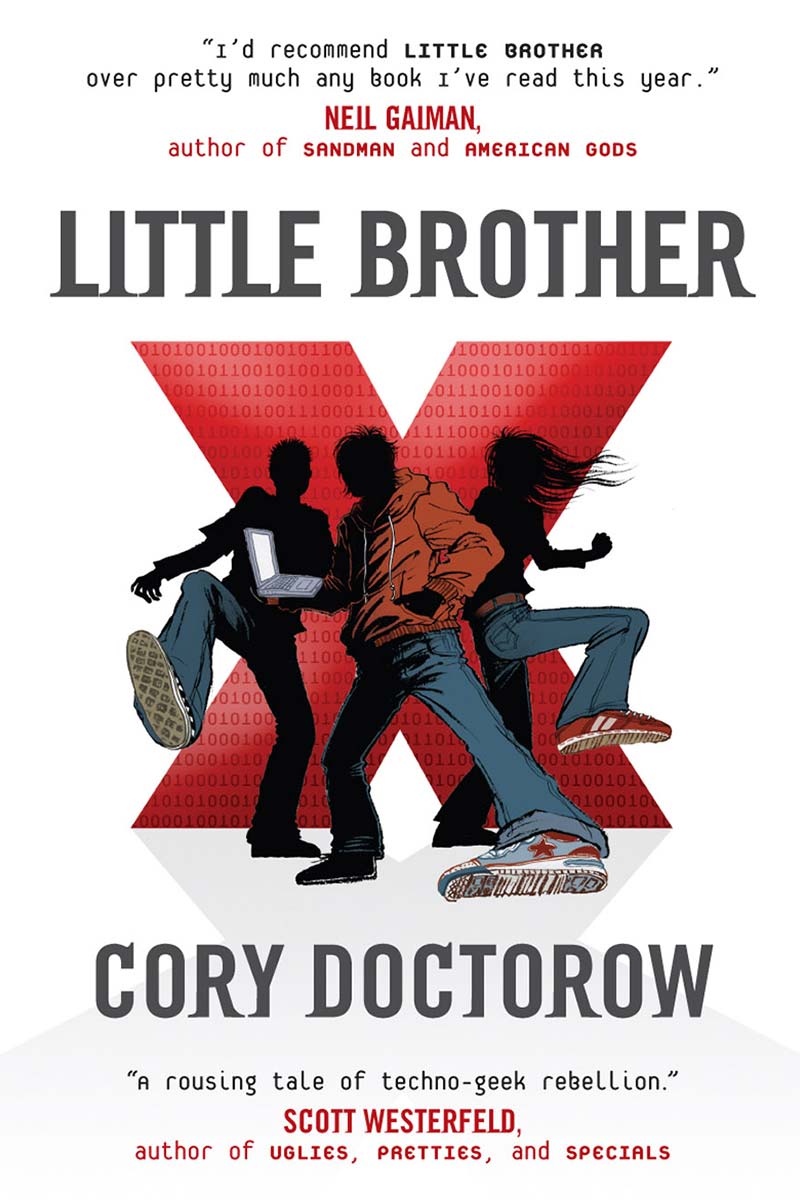Here’s a reading from my upcoming novel, Homeland, the sequel to Little Brother. It’s a rehearsal for the readings I’ll be giving at schools and libraries when I leave for my 22-city US tour next week.
He fitted me with a blood pressure cuff — yeah, it was a tactical cuff, which clearly made this guy as happy as a pig in shit — and then started in with the electrodes. He had a lot of electrodes and he was going to use ’em all, that much was clear. Each one went in over a smear of conductive jelly that came out of a disposable packet, like the ketchup packets you get at McDonald’s. These, at least, were non-tactical, emblazoned instead with German writing and an unfamiliar logo.That was when I started puckering and unpuckering my anus.
Yes, you read that right. Here’s the thing about lie detectors: they work by measuring the signs of nervousness, like increases in pulse, respiration, and yeah, sweatiness. The theory is that people get more nervous when they’re lying, and that nervousness can be measured by the gadget.
This doesn’t work so well. There’s plenty of cool customers who’re capable of lying without any outward signs of anxiety, because they’re not feeling any anxiety. That’s pretty much the definition of a sociopath, in fact: someone who doesn’t have any reaction to a lie. So lie detectors work great, except when it comes to the most dangerous liars in the world. That’s the “It’s better than nothing” stupidity I mentioned before, remember?
But there’re plenty of people who start off nervous — say, people who’re nervous because they’re taking a lie detector test on which depends their job or their freedom. Or someone who’s been kidnapped by a couple of private mercenaries who’ve threatened to take him to their hideout if he doesn’t cooperate.
But sometimes, lie detectors can tell the difference between normal nervousness and lying nervousness. Which is why it’s useful to inject a few little extra signs of anxiety into the process. There are lots of ways to do this. Supposedly, spies used to keep a thumbtack in their shoe and they could wiggle their toes against it to make their nervous systems do the Charleston at just the right moment to make their “calm” state seem pretty damned nervous. So when they told a lie, any additional nervousness would be swamped by the crazy parasympathetic nervous system jitterbug their bodies were jangling through.
Thumbtacks in your shoe are overkill, though. They’re fine for super-macho super-spies for whom a punctured toe is a badge of honor. But if you ever need to beat a polygraph, just pucker up — your butt, that is.
Squeezing and releasing your butt-hole recruits many major muscle- and nerve groups, gets a lot of blood flowing, and makes you look like you’re at least as nervous as a liar, when all you’re doing are some rhythmic bum-squeezes. As a side bonus, do it enough and you will have BUNS OF STEEL.
Mastering by John Taylor Williams: wryneckstudio@gmail.com
John Taylor Williams is a audiovisual and multimedia producer based in Washington, DC and the co-host of the Living Proof Brew Cast. Hear him wax poetic over a pint or two of beer by visiting livingproofbrewcast.com. In his free time he makes “Beer Jewelry” and “Odd Musical Furniture.” He often “meditates while reading cookbooks.”






























